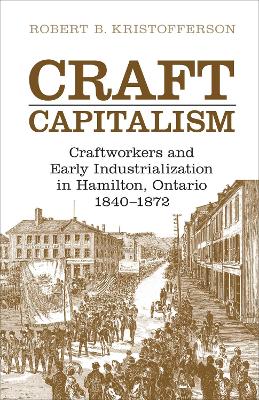Canadian Social History
1 total work
Many studies have concluded that the effects of early industrialization on traditional craftsworkers were largely negative. Robert B. Kristofferson demonstrates, however, that in at least one area this was not the case. Craft Capitalism focuses on Hamilton, Ontario, and demonstrates how the preservation of traditional work arrangements, craft mobility networks, and other aspects of craft culture ensured that craftsworkers in that city enjoyed an essentially positive introduction to industrial capitalism. Kristofferson argues that, as former craftsworkers themselves, the majority of the city's industrial proprietors helped their younger counterparts achieve independence. Conflict rooted in capitalist class experience, while present, was not yet dominant. Furthermore, he argues, while craftsworkers' experience of the change was more informed by the residual cultures of craft than by the emergent logic of capitalism, craft culture in Hamilton was not retrogressive. Rather, this situation served as a centre of social creation in ways that built on the positive aspects of both systems.
Based on extensive archival research, this controversial and engaging study offers unique insight to the process of industrialization and class formation in Canada.
Based on extensive archival research, this controversial and engaging study offers unique insight to the process of industrialization and class formation in Canada.
